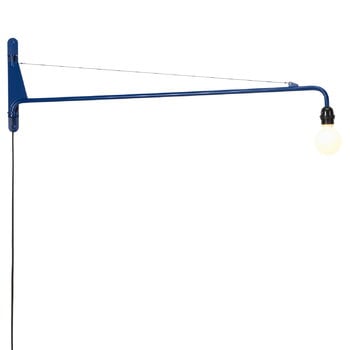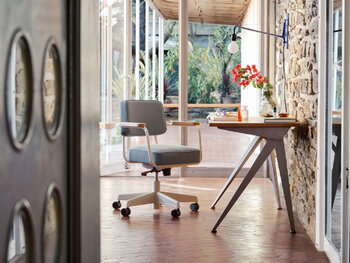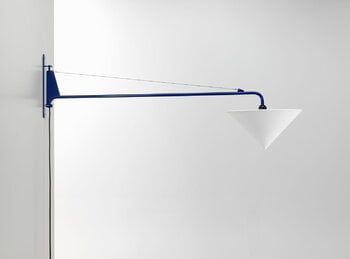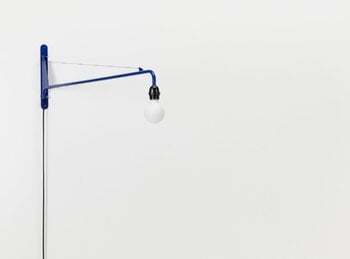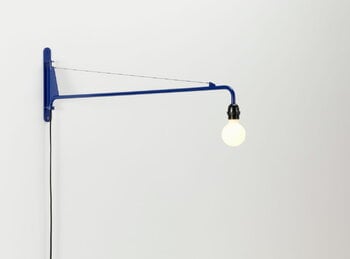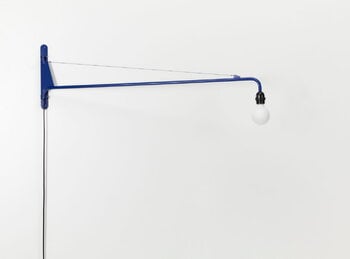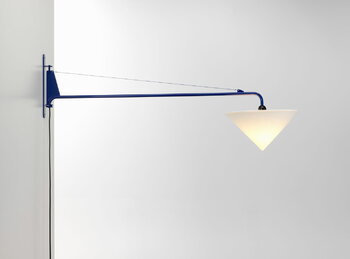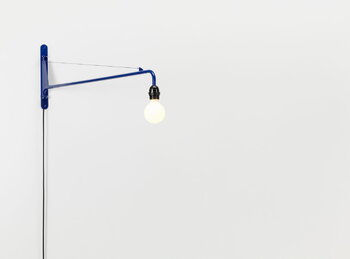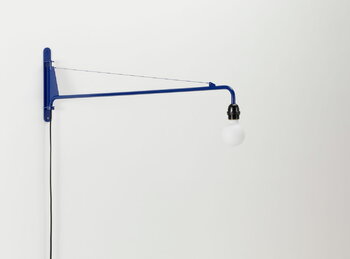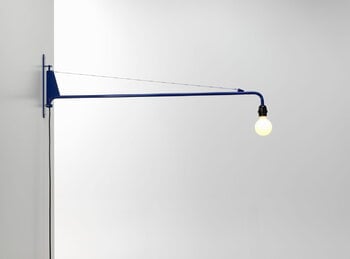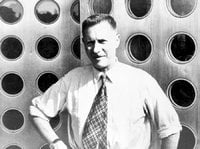Vitra’s Petite Potence wall lamp was designed by Jean Prouvé in 1947. Prouvé designed the first Potence lamp for his own home in Nancy, France, and its refined functionalism has since found its place in various uses in homes and public environments.
Potence is regarded as one of the most puristic works by Prouvé: it consists of a light bulb and a pivoting steel bar held by a steel wire. The steel bar has a length of over one metre, and the included LED bulb is dimmable. Petite Potence catches the eye with its timeless, minimalist appearance, and also makes a great alternative to hanging pendant lights.
The vivid blue shade of the lamp belongs to Jean Prouvé's original colour chart, which he developed himself. The name of the colour, Bleu Marcoule, comes from a power plant in Marcoule, France, for which Prouvé designed blue-hued furniture in the 1950s.
